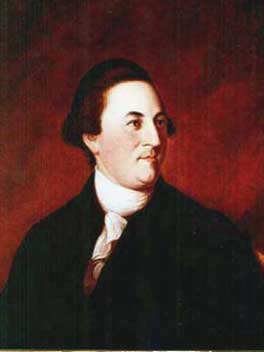Paca, William

William Paca was born in 1740 at Chilbury Hall, near Abingdon in Harford County, Maryland. He began his studies with a private tutor and later attended what is today known as the University of Pennsylvania. Once he graduated, he returned to Maryland to study with a lawyer in Annapolis and then traveled to England to further his legal education
Paca was back in Maryland in the late 1760’s. In 1768 he started to serve on the colonial legislature. He became a member of the Maryland committee of correspondence in 1773. In 1774 he began attending the Continental Congress and stayed on until 1779. While in Philadelphia, he became most well known for his work in Maryland. When there was insufficient support to vote for independence, for example, Paca returned home to campaign for the necessary support - and got it. Not long after, he helped Maryland draft a State constitution, and in the following year, he began a two-year term in the Maryland senate.
From 1778 up until 1782, Paca held positions as chief justice of the State Superior Court and later as chief judge of the circuit of appeals in admiralty and prize cases. In 1788 Paca was present as a delegate at Maryland’s convention to ratify the Federal Constitution. While a supporter of the document, Paca felt amendments were necessary, and he was involved in the creation of the initial list of possible amendments. The following year he was appointed Federal district judge by Washington, a position he held until he died in 1799 at the age of fifty-eight. Paca’s grave now lies his family’s burial ground near Wye Plantation in Maryland.
 >
>